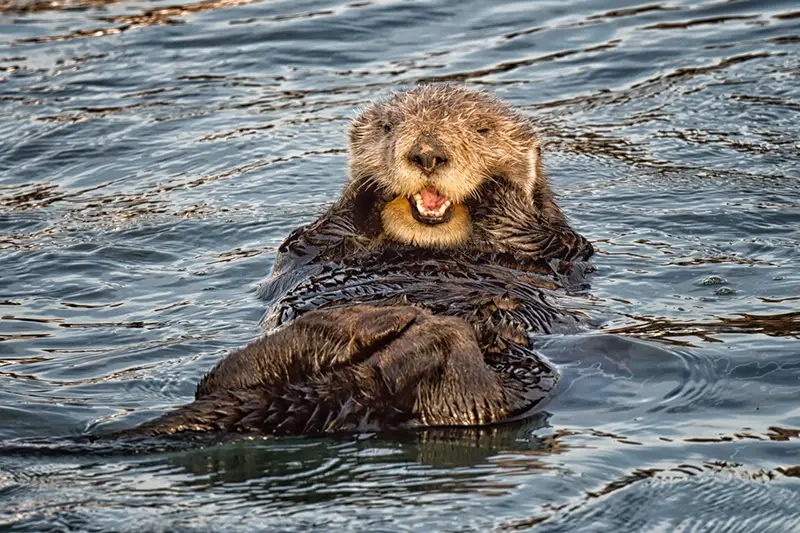REGION — New research from the University of California San Diego and University of British Columbia has revealed a direct economic benefit of recovering sea otter populations to the tune of $53 million per year.
Since their reintroduction to the Pacific Coast in the 1970s, the sea otters’ rapid recovery and appetite for shellfish such as sea urchins, clams and crabs has brought them into conflict with coastal communities and fishers, who rely on the valuable fisheries for food and income.
But the long-term benefits of sea otter recovery — such as healthier kelp forests, higher fish catches, carbon storage and tourism — could be worth as much as $53 million per year, according to new research led by scientists at the two universities. If well-managed, these economic benefits could offset commercial losses to shellfish fisheries of $7 million per year.
The study, published Thursday in academic journal “Science,” evaluates the significant long-term ecological changes driven by a top predator like the sea otter. The study was conducted on the west coast of Vancouver Island in Canada, and is representative of otter-driven impacts across their entire range, from Alaska through California.
“Predators like otters can dramatically change ecosystems in ways that affect people’s livelihoods,” said study co-author Jonathan Shurin, a professor at UC San Diego. “Otters are controversial on the coast as shellfish harvesters see their take decline when otters arrive. However, kelp forests expand as otters eat grazers like sea urchins, making more habitat for fish, soaking up carbon and drawing tourists. Our results indicate that the economic benefits of having otters present outweigh the costs.”
The project was based on the thesis of Shurin’s former student Russ Markel, who studied the effects of otters on kelp forest fish communities. They studied how fish growth and diets differed between North Vancouver Island, where otters and large kelp forests are present, and South Vancouver Island, with no otters and only very small kelp forests. They then collaborated with researchers who measure “ecosystem services,” the economic, social and cultural benefits people derive from ecosystems.
“We found that coastal ecosystems with otters present are almost 40% more productive. In the long run, that equates to higher fish catches worth $9 million, carbon storage worth $2 million and tourism opportunities worth $42
million per year,” said study lead author Edward Gregr, an adjunct professor
at the Institute for Resources, Environment and Sustainability at UBC.
By keeping urchin populations in check, otters allow kelp forests to recover. Healthy kelp forests, in turn, sequester carbon and support abundant marine life, from salmon and lingcod to seals and whales.
“It’s clear that humanity must reverse the decline in biodiversity if we want to achieve a sustainable future,” said co-author Kai Chan, a professor at UBC.
But, the researchers warn, the costs and benefits of such large ecosystem reorganizations are often not equally distributed. In British Columbia, future management decisions must consider the implications for local Indigenous communities and fishers, who are experiencing the losses from shellfish fisheries more acutely.
For example, while commercial fishers are likely to adapt to fewer crabs in shallow waters by fishing in deeper waters, indigenous or recreational harvesters with more restricted access may not be able to.



